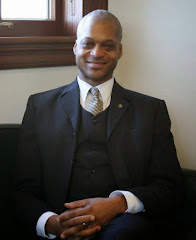In the September 1976 edition of Organic Gardening and Farming, Robert Rodale wrote an editorial that is just as timely today, nearly 37 years later, as it was when he penned it. He provides a clear picture of how independent we are not and suggests what we can do to best progress toward independence.
It should come as no surprise that one of his suggestions is this:
Gardens of LibertyMusic to my ears. I've been preaching this for as long as I've been preaching anything. It fuels my fire as we work to encourage and teach more people to grow and process their own food, as we work to influence policy in Augusta that will ensure the preservation of family farms and traditional foodways, with a distinct focus on making it easier for homemade food and farm food products to be accessible to people in their local communities.
The garden is the best place to start looking for ways to help people become more independent. A garden is both the symbol and reality of self-sufficiency—especially an organic garden, which recycles organic wastes of the yard and household, permits the production of significant amounts of food with only minimal reliance on outside resources. Any campaign to boost personal independence should start by helping people become gardeners—teaching, motivating, and making land available.
Liberty doesn't end at the border of the garden, though. Home production of a variety of goods and services extends the idea of gardening. Both gardeners and non-gardeners can also grow their own bean sprouts, make some of their own clothes, become proficient at crafts, improve insulation of their home, and do similar home production tasks. Each such activity you learn makes you less dependent on others.
So, here I am. A small-scale organic farmer serving in Augusta to bring more liberty to the People in the most essential way I know how: food sovereignty. While our efforts didn't succeed this time around (we did get edible landscaping in Capitol Park, a lead-by-example garden initiative that I believe makes common sense), Rodale believed in 1976, as I'm sure he would today, that such efforts remain necessary at all levels of governance. To wit:
Needed—A Politics of IndependenceWhether or not we need a research effort at the national level to make more practical what many of us already practice in our lives at the community level is anybody's guess. But here in Maine, we can do better. We must embrace policies that encourage more personal independence and self reliance -- starting with food.
Personal independence is an idea with profound political importance, yet it is a non-partisan concept. Whether you are liberal or conservative in your thinking, or middle of the road, you can make good use of greater personal independence. Any free political philosophy that a community chooses to emphasize will work better if its citizens have greater independence. Perhaps that’s because a government of independent people is by definition a smaller government, and is called on to provide fewer services. A government that is smaller can be observed more clearly, and is easier to manage, no matter which party is in charge.
Can the political system be used to help us become more independent? I think it not only can, but must be used for that purpose. We are so tied up now by centralization, especially centralization of government functions and programs in Washington, that in spirit of peaceful revolution we must petition for loosening our present bonds of dependence. Only by sticking to a positive approach can we mount a unified effort for personal independence that will have the support of people of all political views.
As a start, we should ask for a research program in personal independence. The development of new techniques and advanced technology is a potent force which has shaped our present society in many ways. Many millions are now being spent in research which is helping large institutions become bigger, and which as a result is squeezing out what little independence is left in us.
We need a comparable effort to develop techniques that will help people work on their own, and do things for themselves. All the activities I’ve mentioned so far (plus more) could be helped immeasurably by a research program in independence. We need more study of improved methods of gardening, alternate energy production, health promotion, transportation, personalized home building, home production, and so forth. I can even visualize a National Institute of Independence, whose sole function would be the development of ways that the American people could partially unhook themselves from the web of dependence that has been created during the 200-year history as a nation. Someday we could even have a Secretary of Independence in the cabinet, presiding over a department that would be working for personal independence in a wide variety of ways.
That may sound somewhat odd to you—asking Washington to help us become independent of the forces Washington represents so clearly, and even having an agent in Washington working toward that end. But the simple truth is that our dependence has increased to the point where we have to ask for help in changing the direction of our lives. It's also true that you and I, when aroused to write letters to our representatives, can get them to take note of our needs and maybe even take some action. Asking for a research effort to make personal independence more practical is really not such a big thing, and should be possible to achieve.


